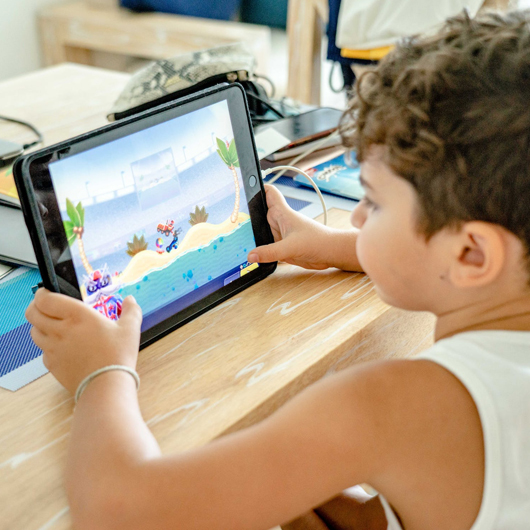What's next?
Interested?
Leave your details here.
UNDERSTANDING THE KUMON METHOD: A COMPREHENSIVE GUIDE FOR PARENTS

In the quest to provide their children with the best education possible, parents often explore various learning methods and programmes. One such method that has gained global recognition is the Kumon Method. In this comprehensive guide for parents, we will delve into what the Kumon Method is, its underlying principles and how it differs from traditional education.
The Kumon Method is an educational approach that was founded by Toru Kumon in Japan back in 1958. It is based on the principle that every child has the potential to become an independent learner and achieve academic success through individualised learning. Unlike traditional education, which typically follows a set curriculum and timetable, the Kumon Method focuses on developing strong foundational skills in Maths and English by allowing students to progress at their own pace.
How does Kumon Differs from Traditional Education?
- Individualised Progress: Traditional education often follows a one-size-fits-all approach, where all students in a class progress through the curriculum at the same pace. In contrast, Kumon allows students to progress individually, ensuring that they master each concept before moving forward. This personalised approach minimises learning gaps and maximises comprehension.
- Daily Practice: While traditional education typically involves classroom instruction with limited practice at home, Kumon requires students to engage in daily practice. This consistent reinforcement of skills is a key component of the Kumon Method, setting it apart from traditional learning.
- Self-Learning: In traditional education, students rely heavily on teachers for instruction and guidance. Kumon, on the other hand, promotes self-learning and independence. Students take ownership of their learning by working through problems on their own, fostering critical thinking and problem-solving skills.
- Mastery-Oriented: Kumon prioritises mastery of basic skills before advancing to more complex topics. Traditional education may rush through curriculum objectives, potentially leaving some students with gaps in their understanding. Kumon’s emphasis on mastery ensures a strong foundation.
- Supplemental Education: Kumon is often used as a supplemental education programme that complements a child’s regular schooling. While traditional education covers a broad range of subjects, Kumon specialises in Maths and English, providing focused support in these crucial areas.
The Kumon Method is a unique and effective educational approach that emphasises individualised learning, daily practice, self-teaching and the mastery of basics. By understanding these principles and how Kumon differs from traditional education, parents can make informed decisions about whether this method is suitable for their child’s learning journey. Whether used as a primary or supplementary educational resource, the Kumon Method has demonstrated its ability to help students build strong foundational skills and become confident, independent learners.
Take the first step by booking an appointment at your nearest centre today and claim a complimentary Diagnostic Test for your child!
P.S. Study Kumon online with Kumon Connect! Now, you can access worksheets and track your child’s progress anytime, anywhere!

